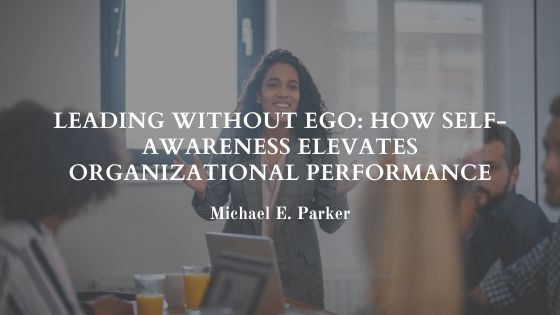Ego is often mistaken for confidence in leadership. But while confidence drives action, ego often clouds judgment. The best leaders are not those who demand attention or assert their superiority, but those who lead with humility and self awareness. Leading without ego is not about being passive — it is about being intentional, reflective, and open to feedback. When leaders manage their ego, they create organizations that are more agile, resilient, and high performing.
Why Ego Gets in the Way
Ego-driven leadership thrives on control, validation, and the illusion of certainty. Leaders led by ego often resist criticism, avoid admitting mistakes, and make decisions to protect their image rather than serve the organization. This behavior shuts down innovation, breeds fear, and silences team voices.
In contrast, self-aware leaders understand their strengths, acknowledge their limitations, and seek out diverse perspectives. They do not need to be the smartest person in the room — they want to surround themselves with people who challenge and elevate the conversation.
The Power of Self Awareness
Self awareness is the foundation of emotionally intelligent leadership. It allows leaders to recognize how their actions and decisions affect others, manage their reactions under pressure, and continuously evolve.
A self aware leader listens more than they speak. They pause before responding. They admit when they are wrong. And most importantly, they create psychological safety — a culture where employees feel safe to share ideas, offer feedback, and take risks.
These qualities build trust. And trust is the currency of performance.
From Personal Growth to Organizational Growth
When a leader leads without ego, the benefits ripple across the entire organization. Meetings become more collaborative, not performative. Talent is recognized based on merit, not politics. Strategies are debated openly, not behind closed doors.
People do their best work when they feel seen, heard, and valued. A leader who models self awareness creates permission for others to do the same. This leads to smarter decisions, more innovation, and stronger alignment across teams.
Practical Ways to Lead Without Ego
- Ask for feedback regularly, and act on it.
- Practice reflective thinking — journal or debrief after tough decisions.
- Admit mistakes openly. Doing so builds credibility, not weakness.
- Celebrate team wins more than personal achievements.
- Surround yourself with people who will challenge you.
- Lead conversations with questions, not assumptions.
The Long Term Payoff
Ego may win the room in the short term, but it rarely sustains impact. Leadership that is rooted in self awareness and humility fosters loyalty, builds high functioning teams, and creates cultures that endure.
In today’s complex and fast changing environment, leaders must be more than decision makers — they must be facilitators of growth. And that requires the courage to step aside from ego and lead with intention.
Ultimately, the less space ego takes up in the room, the more space there is for others to thrive — and that is the hallmark of true leadership.
